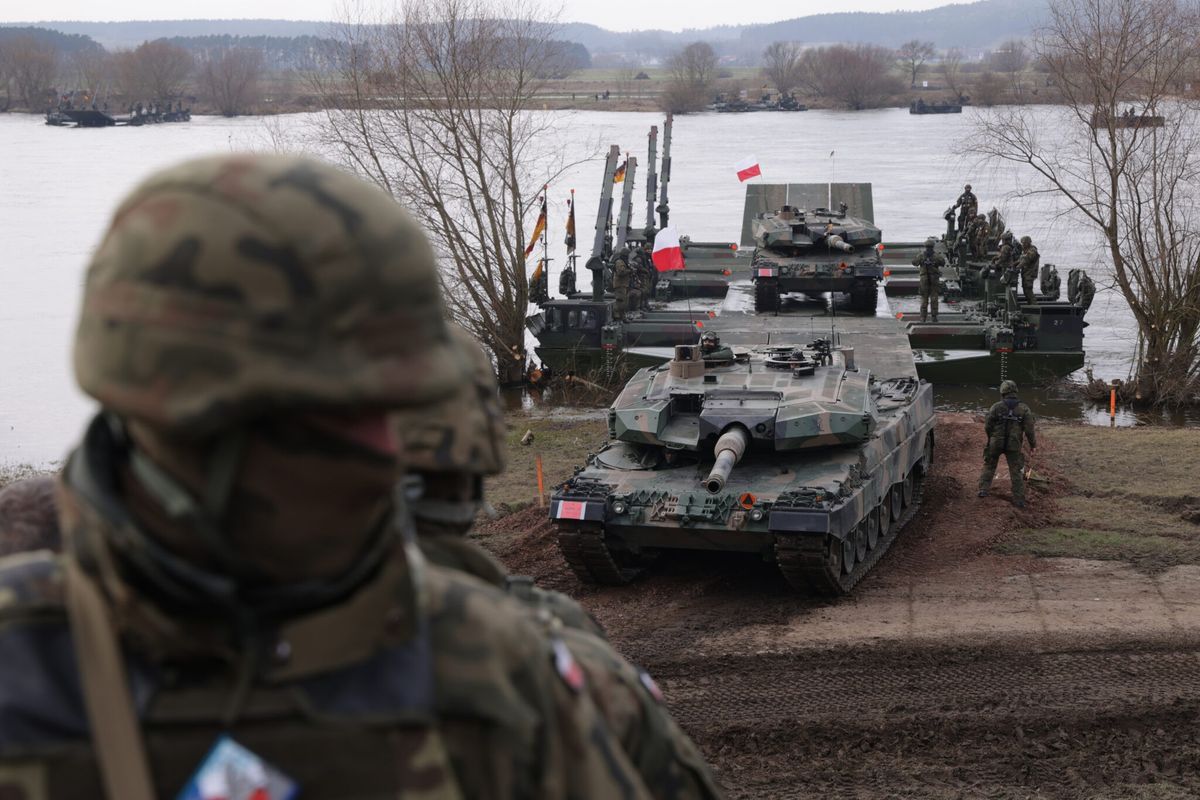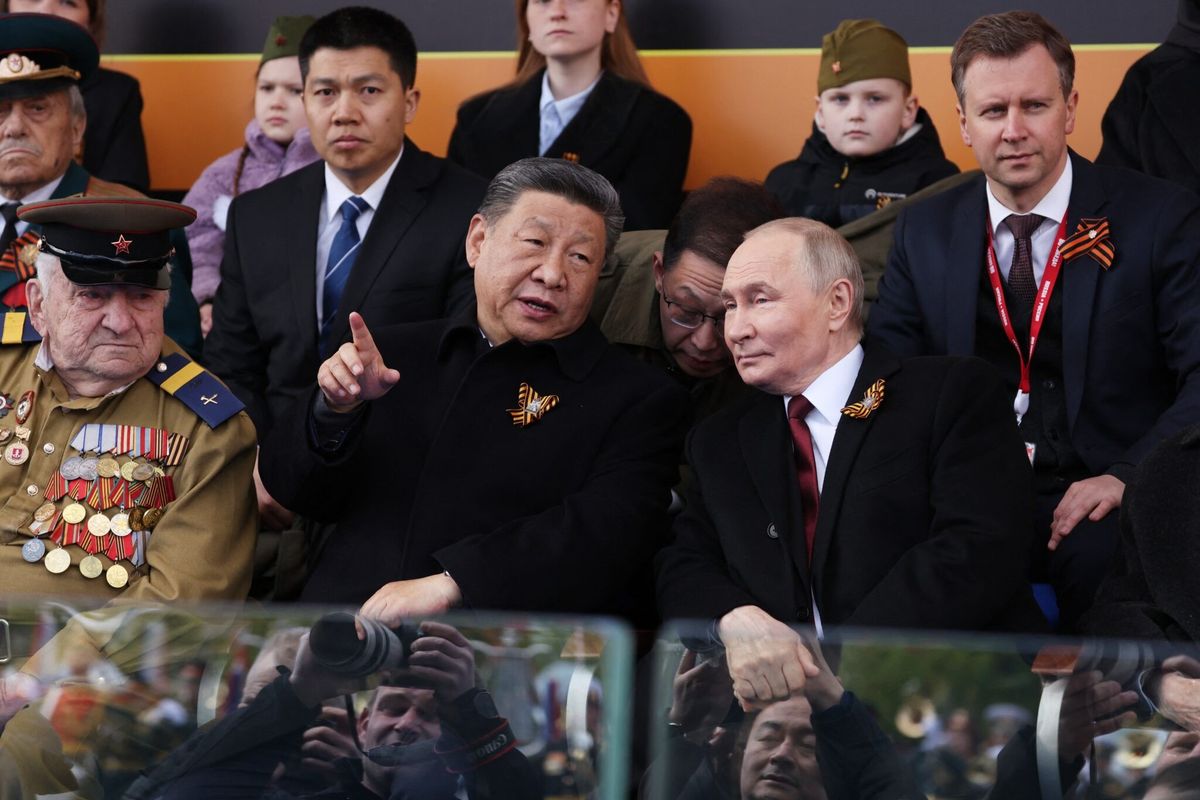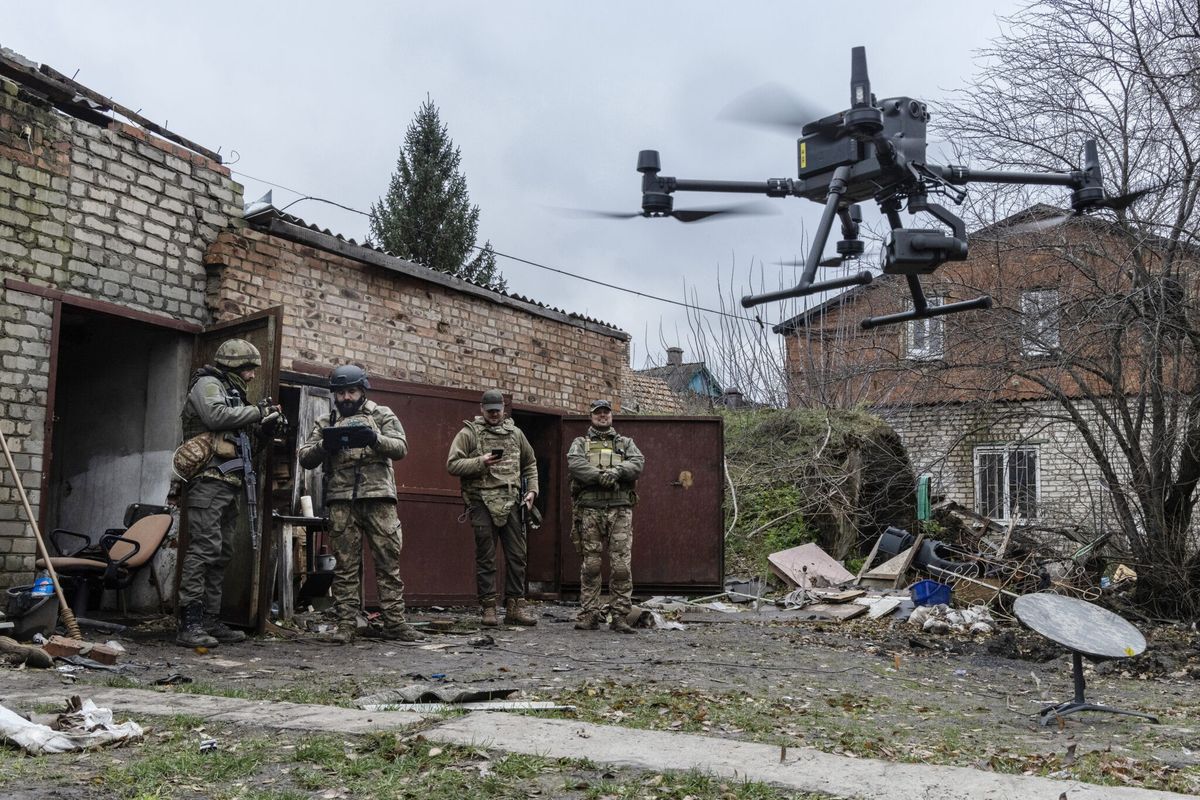EXPERT INTERVIEW - Ukraine’s invasion of the Kursk region has stunned many people – in Russia and beyond – for its success in capturing Russian territory in the midst of Vladimir Putin’s war against Ukraine. It has also raised new questions about the state of the Russian military.
The immediate questions involve the breach of the frontier. How had Russian border guards failed to repel the invaders? And why did Russian military intelligence miss the signals that they were coming?
But those questions were also reminders of broader failings of the Russian military that have been exposed since Putin launched the full-scale invasion of Ukraine in 2022.
Since then, Russia has lost an estimated 300,000 soldiers to death or injury. That’s far higher than Russian losses in any campaign since World War II. In the first months of the war, nine Russian generals were killed – what Cipher Brief expert General David Petraeus called an “inconceivable loss” for a modern military. Petraeus and others blamed poor training, botched communications, and command and control issues for the Russian losses.
Russia has stayed in the fight in Ukraine, thanks to a series of drastic measures. Putin offered freedom for prisoners if they agreed to fight; he has used mercenaries from the Wagner Group, and boosted soldiers’ pay to more than double the average wage. And in September 2022 Putin ordered a “partial mobilization” of another 300,000 troops.
It also helps that Russia is led by a dictator who doesn’t need to worry much about political blowback as he sends more of his citizens to war.
But how and why has one of the world’s most powerful and vaunted militaries fallen so far, and so fast? The Cipher Brief put that question to Michael Bohnert, a military expert at the RAND Corporation who has done analysis for the Australian and Canadian militaries, and for multiple branches of the U.S. military.
Bohnert spoke with Cipher Brief international correspondent Ia Meurmishvili, for the latest episode of The World Deciphered. Watch the discussion at The Cipher Brief's YouTube Channel.
Their conversation has been edited for length and clarity.
The Cipher Brief: Where do you see the Russian military today, as opposed to in February 2022, when everybody thought that Kyiv was going to fall in three days?
Bohnert: It is a different Russian military from when they started, both in terms of how it operates and because almost every original soldier is either dead or permanently wounded. So it is a very different military, and they operate very differently.
The Cipher Brief: There’s a famous Ukrainian assessment of the Russian military now – that the second largest military in the world now has turned into the second most powerful military in Ukraine. How would you assess Russia’s overall military might right now – if we can call that?
Bohnert: In the 1990s, after the fall of the Soviet Union, RAND did a series of force assessments looking at how militaries would look in the 1990s and 2000s as regional actors. And basically the Russian military today, they have depleted themselves to what we thought (Iraq’s President) Saddam Hussein could maybe develop into if he tried hard. So that's a very different way of looking at it. Their force, down to the number of tanks and armored vehicles and personnel is really not even world-class. It's large, but it's nothing that we ever expected they would be able to accomplish. It's minor. It’s regional-sized.
Overall, their force sizing is literally a 10th of what it was during the Cold War. Much of its equipment dates back to the Soviet era.
The Cipher Brief: In a recent article for RAND, you wrote that Russia is producing as much as it's losing on the battlefield. What does that mean?
Bohnert: Russia is losing roughly a thousand casualties a day, a combination of dead and wounded, and then they're losing roughly an equivalent amount of equipment. Sometimes that's in the dozens of vehicles, sometimes more from the personnel perspective.
It looks like they're able to recruit 20 to 30,000 new soldiers every month – so you do the math. That's roughly even, depending on how things go.
And then from their industrial production, whether it's tanks, armored vehicles, artillery, they're pulling older equipment out and they're refurbishing it, but they're also making new equipment, based on the latest figures that are coming out, the new equipment is roughly between 10 and 30% of what's being produced. And so as we're seeing that level that's coming out of the factories, between the new and refurbished, it’s pretty close to making up for the losses. The difference is the depth that they have in their strategic reserves. The estimates are roughly one to one and a half years remaining at the refurbishment rate. So you're starting to see the bottom of the barrel, but it's not quite there yet.
The Cipher Brief: What does that mean for the sustainability of the military operation from the Russian side?
Bohnert: That's the question everyone's trying to get to. We do know that they've been missing the recruitment goals. One major source of evidence is they've been increasing their recruitment bonuses. On the equipment side, the tanks and the armored vehicles and all that are increasing. But once they start to run out of new equipment, they're going to have to adapt.
Now, as much as people have made fun of Russia's top-down approach, they have been able to adapt over time. They have been showing decent capabilities with dirt bikes, four-by-fours – golf carts, basically, that they've been able to improvise.
The Cipher Brief: What does that mean?
Bohnert: It’s something that Russia picked up on. They picked up on the tactics of using dirt bikes and golf carts, because they put one or two people in each vehicle and spread the vehicles more than there was artillery to hit them. So it was a strange but actually useful tactic. The dirt bikes gave them speed. That being said, there's almost no survivability. So any troops that are in those – once hit, they die.
I don't want to say that once Russia runs out of equipment, they're going to give up, but it definitely will hinder their ability to fight further. The sooner it's depleted, the more effective it's going to be for Ukraine.
The Cipher Brief: Let's talk about the Kursk offensive. What impact has it had on Russia's military capabilities?
Bohnert: The Ukrainian special military operation into Kursk was definitely unexpected. I will say for those of my colleagues that were former tank commanders going back to 2023, they were saying, Man, if only you could go into Kursk, this would be a lot easier relative to the other counteroffensive. So this isn't necessarily something that people didn't see – they just didn't expect Ukraine to do it for political reasons.
And Russia hasn't really put resources into defending the border. They haven't put forth the people, vehicles, fortifications, and money. It's been basically left undefended for two years, three years, which has been a giant asymmetric advantage for Russia, because Ukraine has had to defend that territory (on its side of the border).
So the immediate impact is that Russia now has to devote some degree of resources to securing this area to prevent Ukraine from moving further. And another aspect of this is it puts Ukrainian forces much closer to many valuable Russian storage locations, factories, logistics hubs and airfields. So they can use lower-cost drones to strike targets that they're not allowed to use Western weapons on, with their longer range. So there's a tactical operational effect to this.
Meanwhile, Russia's forces have structured very heavily on taking territory in the Donbas, in eastern Ukraine. If you look at the number of troops that it'll take to cover the border and to expel the Ukrainians, that's going to be something like three to five months of Russian force generation. So Russia is going to have to pick – either pull troops from somewhere else, or bring conscripts that are in Russia, to fight in Kursk. So those are strategic decisions that they'll have to make.
I can't speak to what Russia is going to do. It looks like their plan is to continue to engage in the assaults in the Donbas, but strip forces from everywhere else, leaving them vulnerable across the whole front. I do think there's going to be a point where you see a slowdown, but this comes down to the Russian high command, and ultimately Putin. What does he care about more – protecting Russians or taking a few meters at a time in the Donbas?
The Cipher Brief: Well, Putin has been downplaying the importance of the Kursk invasion.
Bohnert: Think about it: What can Putin actually do to respond?
In the Donbas, it looks like they just threw a dictator's equivalent of a temper tantrum and fired a lot of missiles and it did damage to IT infrastructure. But ultimately, short of any weapons of mass destruction, Vladimir Putin doesn't really have any options left. Going back to the days of the USSR, when they don't talk about something means they don't have an answer. They don't have any solutions for it. And I think this is a case of a dictator that doesn't have a solution.
So Putin is going around, trying to find friends. That's what weak dictators do. When they have problems, they go on world tours to see who their friends are, and he seems to keep on coming home empty-handed. So there's two sides of this. On the one side, it shows Putin's weak; on the other, a weakened cornered animal tends to strike back harder. So I hate pulling the two sides of the coin, but I don't know what Putin's thinking and a lot of people have been wrong about his thinking, so I'm not going to try to make a prediction.
The Cipher Brief: Is the Russian military still the force that we all thought they were when this war started, two and a half years ago?
Bohnert: They're definitely not the force people thought they were. They're significantly less capable in all manners except brutality. They're less capable in terms of fires, maneuverability and logistics. They've been making up for it in brutality and sheer force of determination. Their units are charging into the jaws of certain death for absolutely no reason. And that's something that will be analyzed for years to come. Friends of mine that study will to fight have said it's pretty much unheard of in warfare, short of instances where militaries were hopped up on drugs, amphetamines, et cetera. The level of willingness to sacrifice is shocking. That's one of the biggest unexpected parts. But overall, the Russian military, it's still capable in terms of mass, but its technical capabilities are decades behind any modern military at this point. It's just purely operating by force of will. And we are seeing cracks in that.
So at some point, this military will continue to decline at its current rates. The question is, will Western aid arrive in Ukraine in time and in quantities to allow Ukraine to prevail, or at least last long enough for the Russian forces to crack?
At the end of the day, the Russian force is very brittle. It is defeatable as long as Ukraine is able to push in the right locations. Using a term of art for millennials that play games, the Russian military is almost like a glass cannon. They're able to fire, they're able to do damage, but if you hit them hard enough, eventually it's going to crack.
Read more expert-driven national security insights, perspective and analysis in The Cipher Brief.













